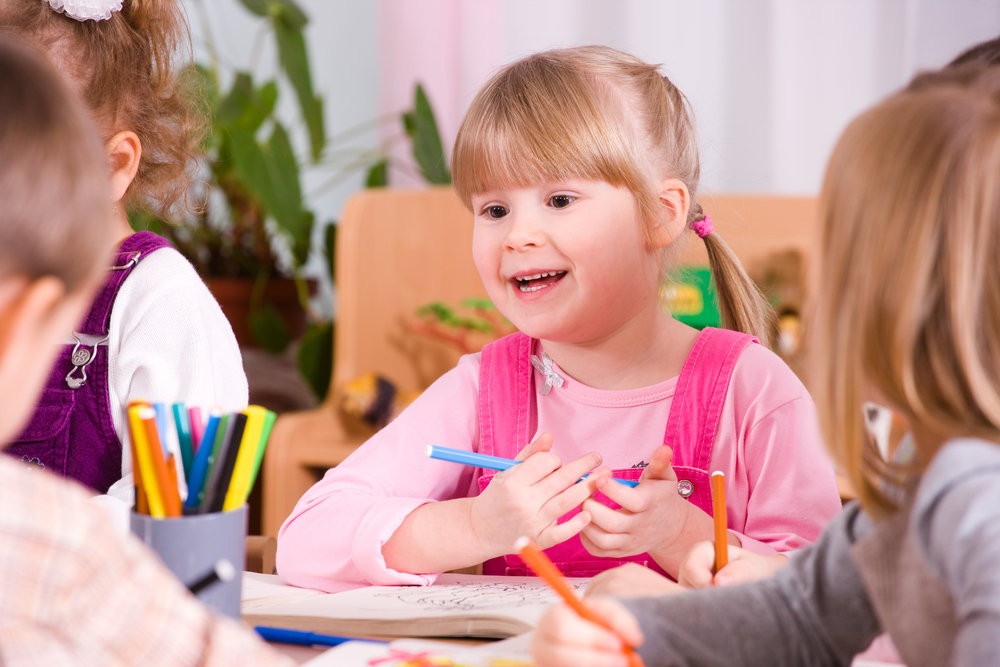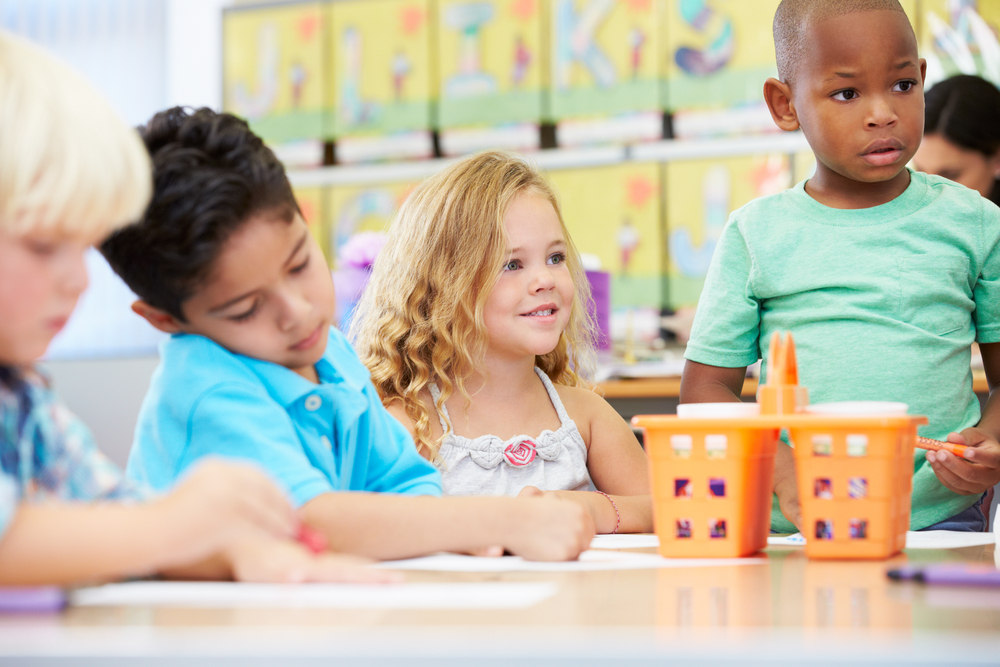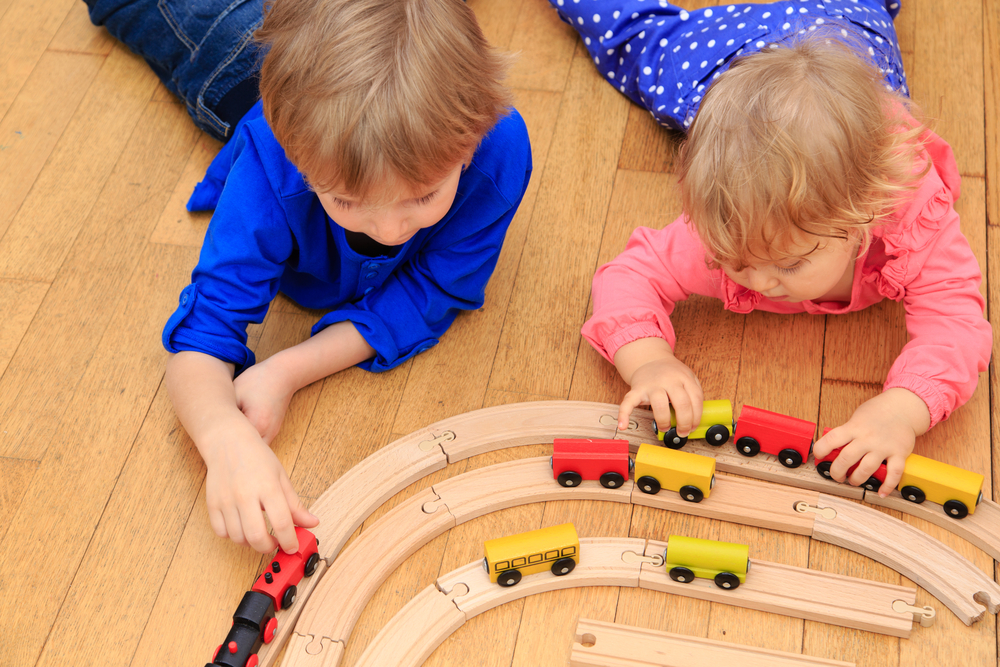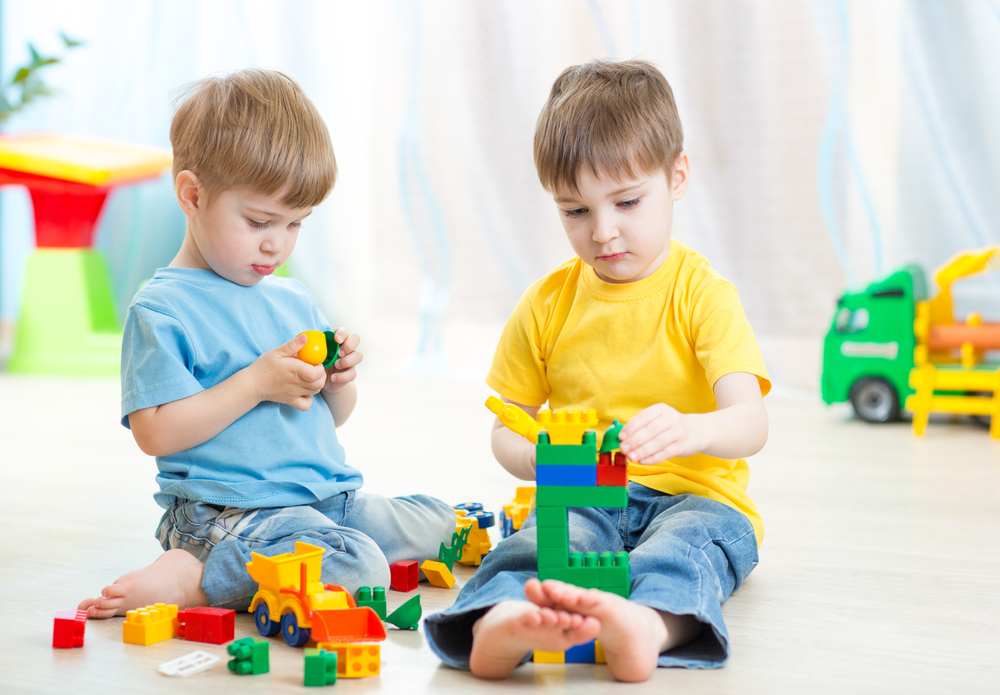Preschools and kindergarten classes are becoming increasingly similar to primary and secondary schools (they’re even assigning homework!). What are the consequences?
The debate over primary and secondary school education has been raging for some time – the best methods of teaching, the pros and cons of standardized testing, etc. Many of those involved in the education system, be it teachers, students, parents, or someone else entirely, have expressed, and at times quite stridently, their frustration and discontent towards the current system. These complaints tend to focus primarily upon the absence of emphasis placed on exploration and intellectual curiosity, on the massive amounts of emphasis placed instead on rote memorization and the frequently stifling educational environments.
As controversial and incredibly important these conversations are, they have mostly focused on primary and secondary schools. Early childhood education was normally left out of the discussion. However, it now seems as though the same debate has trickled down to the education of our youngest learners. With preschools and kindergarten classes become increasingly similar to primary and secondary schools’ classrooms (they’re even assigning homework!), a number of vocal and persistent opponents are protesting.
What Is Happening to Early Childhood Education?
According to researchers at the University of Virginia, kindergarten is the new first grade. In a study conducted over a 12 year period that compared kindergarten and first grade classrooms between 1980 and 2010, the researchers found that kindergarten teachers have much higher expectations of their students, with as much as 80% of them expecting their students to be literate by the end of the school year.
Pre-K, too, has changed. One article written by Erika Christakis in The Atlantic, called “The New Preschool is Crushing Kids”, describes a popular preschool curriculum that included “key concepts” (sound familiar?) that children were supposed to master. Among these were vocabulary words and units (another primary and secondary school concept) that covered topics like the ocean; students were asked to learn terms like “exoskeleton”, “tube feet”, and “scallop shell” – words that are covered in high school biology and would likely induce a confused look on many adults’ faces.
A preschool curriculum like this is highly disconcerting, and not just because three and four year olds are learning the same things I covered as a freshman in high school. Pre-K is becoming more and more about structured curriculum, rote memorization, and preparation for standardized tests (that the children won’t even take until three or four years later). There is an absence of exploration and passion that echoes that of high school education systems. And as concerning as this is in regards to our primary and secondary classrooms, it is even more distressing in regards to our early education systems: the early years of childhood, before age five, children are interpreting the world around them. They learn through active exploration; they learn by doing, not by age-inappropriate worksheets and “seat work”.
The complaints we have about high school now apply to preschool. It seems that we’ve taken to a “one size fits all” education system that’s based in information, rather than ideas.
The “One Size Fits All” Education System
The cause of this shift towards information-based learning is likely rooted in our concern over losing our competitive edge in the world and the ever-increasing gap between the poor and the rich. With reports streaming that the United States is losing its place, that our students are losing ground in the contest between nations, it’s no wonder that we’re trying to up our game. Additionally, with the disparity between the wealthy and impoverished constantly widening, the relentless pursuit of closing the gap through determined cramming of information in public pre-K seems even prudent. We want our kids to succeed, and as such we’re pushing them to be smarter, learn faster, and understand more.
However, as much as we want it to succeed, and as much as we want to help our youngest learners, it seems that the current approach is actually backfiring. A study conducted on Tennessee’s public pre-K has revealed that inappropriate forms of early education (like those that concentrate on school readiness rather than age-appropriate learning) in fact undermines intellectual engagement, curiosity, and achievement. The researchers found that, though preschool students entered kindergarten with a slight edge over their peers, by the end of first grade that edge had disappeared entirely. In fact, many of those preschool students complete first grade less engaged and inquisitive than their peers and were beginning to fall behind.
This study was only one of many with similar findings. In the face of so many negative reports, shouldn’t we rethink our approach?
Alternative Approaches We Might Need to Consider
If we want to catch up to other nations or close the gap between the rich and poor, we might do well to learn from the best, both at home and abroad. Lisa Miller, in New York Magazine‘s “Is Pre-K Broken?“, writes:
The best programs don’t resemble remedial education designed to bring impoverished 3-year-olds up to speed.
Rather, they allow the students to learn through communication, conversation, action, and exploration. Students learn through social interaction how to listen and talk to others, and they use their imaginations and critical thinking skills to understand the world around them. Discipline, physical and mental concentration, and the ability to follow directions seem to be less significant, and emphasis on these could in fact smother children. In Finland, which consistently ranks among the world’s best education systems, children don’t begin their formal reading instruction until age seven. The Finns, when asked about this, state:
The basis for the beginnings of literacy is that children have heard and listened”¦ They have spoken and been spoken to, people have discussed [things] with them”¦ They have asked questions and received answers.
Perhaps it is time that we approach education with a similar mindset.
To return to the idea of homework for preschoolers, it seems like the problem lies not in the existence of homework, but in the nature of the homework; it lies not in how high or low expectations of students are, but how we go about fulfilling those expectations, and maybe even in the mere existence of those expectations. Children should be allowed to learn and play and grow at their own pace, in accordance with their own interests. We’ve become so focused on closing the gap, on just getting to our goal, that we forgot that the process is the most important aspect, especially concerning young children. The consequences of a lousy education system are immense: whole generations to come that can’t think creatively and communicate effectively, unable to meet challenges yet unimaginable. While we want to prepare our children, it’s important that we find balance in the way we educate our children.
How can we best prepare our kids? Parents and teachers, please let us know your thoughts!




















